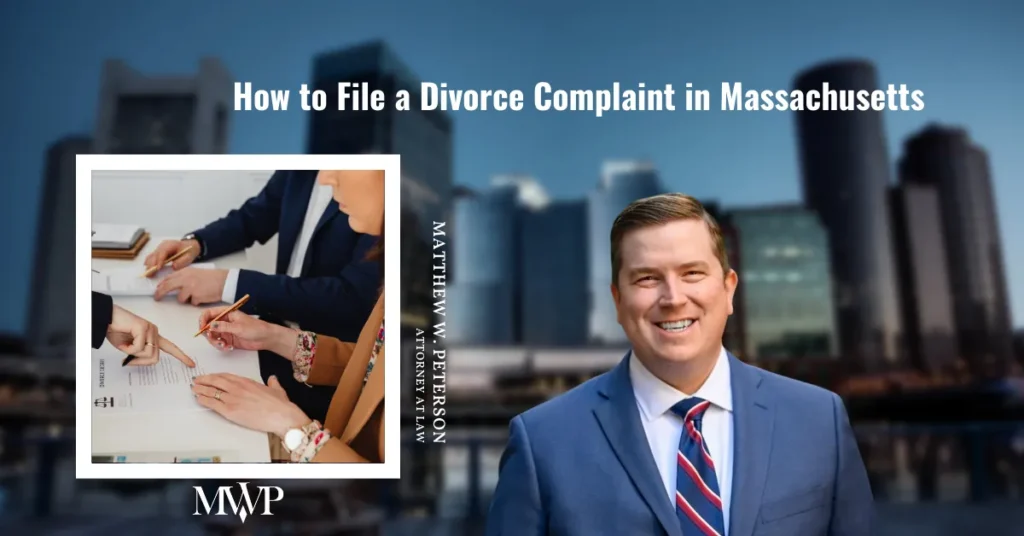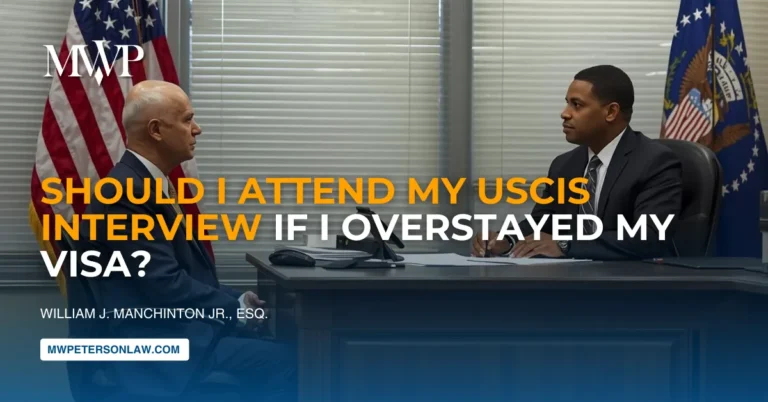Filing for divorce is a significant step that involves understanding and navigating complex legal procedures. In Massachusetts, the process begins with filing a divorce complaint, which sets the legal process in motion. This post will guide you through the steps of filing a divorce complaint in Massachusetts and discuss why it is crucial to hire an experienced divorce lawyer. If you are looking to get divorced, you need a reasonable divorce lawyer who will settle the matter amicably. Call or text us today at 617-295-7500, and let me get to work on settling your family matter in the simplest way possible.
Step-by-Step Guide to Filing a Divorce Complaint in Massachusetts
Step 1: Determine the Type of Divorce First, decide whether you are filing for a fault or no-fault divorce. A no-fault divorce indicates that neither party blames the other for the breakdown of the marriage, typically filed under the grounds of an “irretrievable breakdown” of the marriage. In contrast, a fault divorce requires you to state a specific reason for the divorce, such as cruelty, desertion, or adultery.
Step 2: Prepare the Necessary Forms To initiate the divorce, you must complete several forms, which can vary based on your specific circumstances. The primary form is the Complaint for Divorce, which includes details about both spouses, marriage, children (if any), the grounds for divorce, and any relief sought (such as custody or alimony). Additional forms may include a Financial Statement, an Affidavit of Irretrievable Breakdown, and a Certificate of Absolute Divorce.
Step 3: File the Complaint Once the forms are completed, file them with the Probate and Family Court in the county where either you or your spouse lives. Filing the complaint requires paying a filing fee, which can be waived for financial hardship.
Step 4: Serve the Papers After filing, the divorce papers must be legally served to your spouse, which means delivering a copy of the divorce documents. This can be done through a sheriff or a constable to ensure that the process adheres to legal standards. Proof of service, which documents that the papers were received by the spouse, must then be filed with the court.
Step 5: Wait for a Response Once served, your spouse has a certain amount of time (usually 20 days) to respond. They can file an Answer to the divorce complaint, possibly including a counterclaim, which states any different facts or additional requests for the divorce terms.
Step 6: Attend the Court Hearing The final step involves attending a court hearing, where issues like child custody, property division, and alimony are settled. In uncontested cases, this process can be straightforward and can even be done without a court hearing. However, contested divorces may require more extensive legal procedures.
Why Hiring a Divorce Lawyer is Essential
Expert Guidance on Legal Requirements Divorce laws can be complex and vary by state. A divorce lawyer will provide detailed knowledge of Massachusetts divorce laws and ensure all legal requirements are met. This includes proper filling out of forms, adherence to specific state laws, and following correct procedures for filing and serving documents.
Negotiation and Representation A divorce often involves negotiations over sensitive issues such as child custody, support payments, and division of assets. A divorce lawyer will represent your interests aggressively and work towards a settlement that protects your rights and assets. They can also handle negotiations with your spouse’s attorney, aiming for a fair and reasonable outcome.
Avoiding Mistakes The legal system can be unforgiving of errors in the filing process or other procedural aspects of a divorce. Mistakes can lead to delays, additional costs, or unfavorable divorce terms. A divorce lawyer ensures that all documents are correctly prepared and submitted, avoiding costly mistakes.
Emotional Support and Objectivity Divorce can be emotionally taxing. A lawyer can help manage the stress by handling the legal processes and providing objective advice at times when personal biases might cloud judgment.
Litigation Expertise If your divorce case goes to court, having a lawyer with litigation experience is invaluable. They can effectively argue your case in front of a judge, especially if your spouse contests the terms of the divorce.
Filing a divorce complaint in Massachusetts is the first step in legally ending a marriage, but the process involves intricate legal procedures and negotiations. Hiring a divorce lawyer is not just a necessity for navigating this complex landscape; it’s a strategic decision to protect your interests, ensure fairness, and achieve peace of mind during an emotionally challenging time. Whether your divorce is uncontested or involves heated disputes, a skilled lawyer is essential to guide you through each stage of the process.











